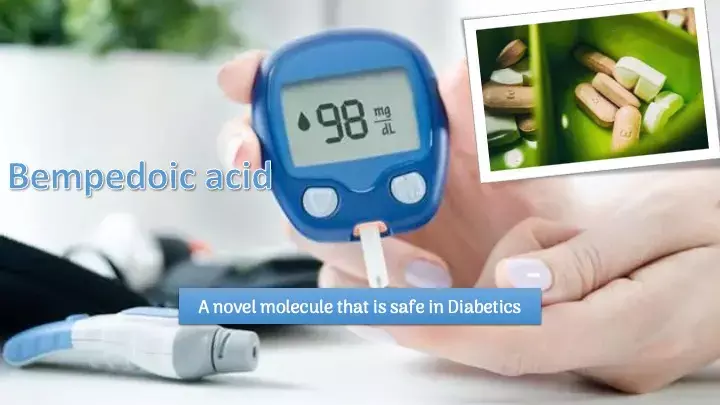- Home
- Medical news & Guidelines
- Anesthesiology
- Cardiology and CTVS
- Critical Care
- Dentistry
- Dermatology
- Diabetes and Endocrinology
- ENT
- Gastroenterology
- Medicine
- Nephrology
- Neurology
- Obstretics-Gynaecology
- Oncology
- Ophthalmology
- Orthopaedics
- Pediatrics-Neonatology
- Psychiatry
- Pulmonology
- Radiology
- Surgery
- Urology
- Laboratory Medicine
- Diet
- Nursing
- Paramedical
- Physiotherapy
- Health news
- Fact Check
- Bone Health Fact Check
- Brain Health Fact Check
- Cancer Related Fact Check
- Child Care Fact Check
- Dental and oral health fact check
- Diabetes and metabolic health fact check
- Diet and Nutrition Fact Check
- Eye and ENT Care Fact Check
- Fitness fact check
- Gut health fact check
- Heart health fact check
- Kidney health fact check
- Medical education fact check
- Men's health fact check
- Respiratory fact check
- Skin and hair care fact check
- Vaccine and Immunization fact check
- Women's health fact check
- AYUSH
- State News
- Andaman and Nicobar Islands
- Andhra Pradesh
- Arunachal Pradesh
- Assam
- Bihar
- Chandigarh
- Chattisgarh
- Dadra and Nagar Haveli
- Daman and Diu
- Delhi
- Goa
- Gujarat
- Haryana
- Himachal Pradesh
- Jammu & Kashmir
- Jharkhand
- Karnataka
- Kerala
- Ladakh
- Lakshadweep
- Madhya Pradesh
- Maharashtra
- Manipur
- Meghalaya
- Mizoram
- Nagaland
- Odisha
- Puducherry
- Punjab
- Rajasthan
- Sikkim
- Tamil Nadu
- Telangana
- Tripura
- Uttar Pradesh
- Uttrakhand
- West Bengal
- Medical Education
- Industry
Novel hypolipidemic bempedoic acid safe in diabetics, may overcome shortcomings of statins: Lancet

Statins reduce LDL cholesterol and cardiovascular events among those with or without diabetes but have been reported to increase new-onset diabetes. A prespecified analysis of CLEAR outcomes trial published recently in The Lancet journal has shown that unlike statins, bempedoic acid is not associated with an increased risk of new-onset diabetes, even in those in the pre-diabetic stage.
More than a decade ago, the US Food and Drug Administration mandated that statins carry a warning about reports of increased blood sugar and HbA1c levels with treatment.
In the 2008 JUPITER trial, for example, rosuvastatin was associated with a significantly increased risk of new-onset diabetes. That risk was confirmed in Sattar et al’s meta-analysis of 13 randomized trials involving more than 90,000 patients showing that statin use was associated with a small, but statistically significant, 9% higher relative risk of new-onset diabetes compared with placebo.
The CLEAR Outcomes trial demonstrated that bempedoic acid reduced the risk of MACE among statin-intolerant patients at high cardiovascular risk. In the present prespecified analysis, the authors aimed to evaluate the cardiovascular benefits of bempedoic acid, in individuals with diabetes, and to evaluate the risk of new-onset diabetes and HbA1c among those without diabetes in the CLEAR Outcomes trial.
The CLEAR Outcomes is a randomised, double-blind, placebo-controlled trial. Patients with or without cardiovascular disease who were unwilling or unable to take guideline-recommended doses of statins and an LDL cholesterol of 2·59 mmol/L or more were randomly assigned (1:1) in a double-blinded manner to either bempedoic acid 180 mg once per day or placebo.
In this prespecified analysis, the efficacy endpoint was a time-to-event analysis of four-component major adverse cardiovascular event (MACE-4), which is the composite of cardiovascular death, nonfatal myocardial infarction, nonfatal stroke, or coronary revascularisation, using the intention-to-treat population stratified by baseline glycaemia status.
The prespecified analysis of risk of new-onset diabetes and HbA1cincrease was evaluated in patients without diabetes at baseline.
The authors found that:
1. Over a median of 3·4 years follow up, patients with diabetes had significant relative and absolute cardiovascular risk reductions in MACE-4 endpoints with bempedoic acid compared to placebo.
2. The proportion of patients who developed new-onset diabetes were similar between the bempedoic acid and placebo groups.
3. HbA1c levels at 12 months and the end of the study were similar between randomised groups in patients who had prediabetes and normoglycaemia.
4. Placebo-corrected LDL cholesterol concentrations and high-sensitivity C-reactive protein at 6 months were reduced in each glycaemic stratum (diabetes, prediabetes, and normoglycaemia) for patients randomly assigned to bempedoic acid.
Importantly, among those without diabetes at baseline, the use of bempedoic acid over 3.4 years of follow-up did not lead to an increase in new-onset diabetes or worsening HbA1c levels, which is a concern with statin therapy. The agent also was linked to a small amount of weight loss.
To conclude, among patients with diabetes, bempedoic acid reduces LDL cholesterol and high-sensitivity C-reactive protein and risk of cardiovascular events. Patients without diabetes had no increase in new-onset diabetes or worsening HbA1c with bempedoic acid. The efficacy and cardiometabolic safety profile of bempedoic acid makes it a clinical option for those with and without diabetes.
SOURCE: The Lancet : https://doi.org/10.1016/S2213-8587(23)00316-9
MBBS, MD , DM Cardiology
Dr Abhimanyu Uppal completed his M. B. B. S and M. D. in internal medicine from the SMS Medical College in Jaipur. He got selected for D. M. Cardiology course in the prestigious G. B. Pant Institute, New Delhi in 2017. After completing his D. M. Degree he continues to work as Post DM senior resident in G. B. pant hospital. He is actively involved in various research activities of the department and has assisted and performed a multitude of cardiac procedures under the guidance of esteemed faculty of this Institute. He can be contacted at editorial@medicaldialogues.in.
Dr Kamal Kant Kohli-MBBS, DTCD- a chest specialist with more than 30 years of practice and a flair for writing clinical articles, Dr Kamal Kant Kohli joined Medical Dialogues as a Chief Editor of Medical News. Besides writing articles, as an editor, he proofreads and verifies all the medical content published on Medical Dialogues including those coming from journals, studies,medical conferences,guidelines etc. Email: drkohli@medicaldialogues.in. Contact no. 011-43720751


